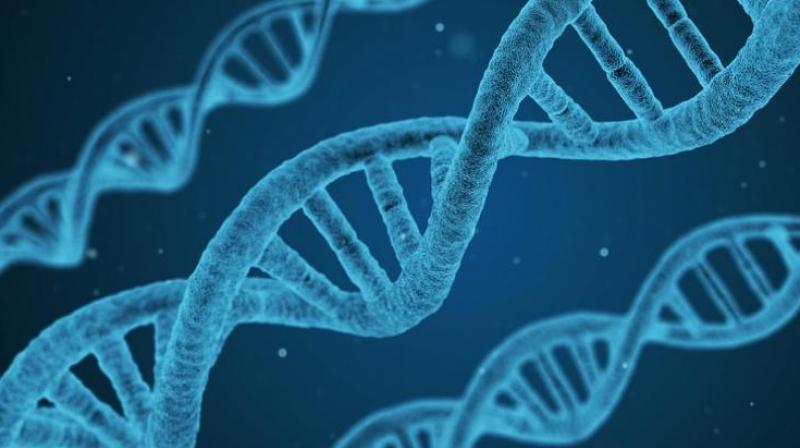DNA database in India increases government responsibilities

I have always been fascinated by detective movies and serials. For a few years, I have been watching American Television series "Forensic Files”. Not surprisingly, the recurring theme in almost all of them invariably has been about, the DNA molecule’s stellar role in solving crimes. India with a population of over billion people has crimes happening every minute in some part of the country or the other. According to National Crime Records Bureau (NCRB) over 300,000 crimes directly affecting people or property were reported in 2016 but conviction rates remained at about 30 per cent.
Would India do better in crime detection if it had a DNA database? Detection of crime in the UK went up from 26% to a healthy 40% after DNA samples were loaded into the national DNA database. In India, although 96% of sexual offences are charge-sheeted the rate of conviction for rape in 2016 according to NCRB was a trifling 25%. Obviously, what appears to be missing is a clinching forensic proof like DNA evidence.
The President of India recently promulgated an ordinance, which prescribes the punishment of death penalty in cases of rape of minor girls. DNA evidence could be particularly crucial in such cases. In 2012, the NGO Lokniti filed a public interest litigation in Supreme Court of India requesting the establishment of a DNA database, to trace unidentified bodies and missing children, basing their argument that right to be identified was also a part of the right to dignity. Following this nudge and some push from investigative agencies like CBI, the Union Cabinet in the first week of July this year, cleared the “DNA Technology (use and application) Regulation Bill 2018” only after 59 countries had preceded India in setting up their national DNA database programs.
The first government database, “The National DNA Data Base” (NDNAD) was set up in the UK in 1995. France set up its database in 1998.FBI in the United States of America, in 1998 assembled a “Combined DNA Index System” (CODIS) database. The DNA database of US has over nine million records which are almost similar in size to the database of UK.
“The DNA technology (use and application) regulation Bill 2018 “passed recently seeks to use DNA for solving crimes by allowing its use for criminal investigation, identifying missing persons, determining biological relationships between individuals. It also allows storage of genetic information of select persons with built-in safeguards against its misuse. The rationale behind this bill apparently being that, the expansive use of DNA in the criminal investigation could contribute to higher conviction rates, especially in cases of murder, rape, human trafficking and other crimes involving human body.
In order to safeguard citizens’ privacy, a few important provisions have been built into the bill. Most important being DNA profiling would be used only for identification purposes and not for any other purpose. Secondly, no bodily substance would be taken from anyone without the previous consent in writing. This may, however, not be applicable for persons punishable either with death or with a sentence of more than seven years. Thirdly, a statutory body called the ‘DNA Profiling Board’ would be responsible for supervision inspection and assessment of DNA standards.
The bill also prescribes setting up of a National DNA Data Bank, and Regional DNA Data Banks for the States, by the Central Government. These Data Banks would be responsible for storing DNA profiles received from the accredited laboratories and maintaining certain indices for various categories of data, like crime scene index, suspects’ index, offenders’ index, missing persons’ index and unknown deceased persons’ index. Besides, people found guilty of flouting the norms proposed by the bill, like leaking the database would be liable for up to three years imprisonment along with a hefty fine of up to '1 lakh.
Lastly, DNA profile would be indexed or used for comparison only if the person has been suspected of a crime or is a previous offender. Any undertrial may request the trial court for another DNA testing if he/she satisfies the court that the previous DNA sample(s) could have been contaminated and hence could not be relied upon.
Finally, before setting up any database, privacy issues should first be addressed. A mechanism prescribed in the bill protects the right to privacy by permitting for processing of DNA samples only for 13 CODIS loci. This will prevent misuse of DNA beyond the identification of a particular person. The strict conformance to 13 CODIS loci will discard the uneasiness of genetic traits getting revealed.
It is also imperative that a quality system is in place before starting any database, as any DNA sample from crime scenes could be contaminated, wrongly analysed, mixed up, matched only by chance or planted. Government therefore has an enormous responsibility of ensuring a quality system to prevent miscarriage of justice and to safeguard the privacy of individuals.
(The author Dr K.Jayanth Murali, an IPS officer, is Director DVAC, Chennai)

